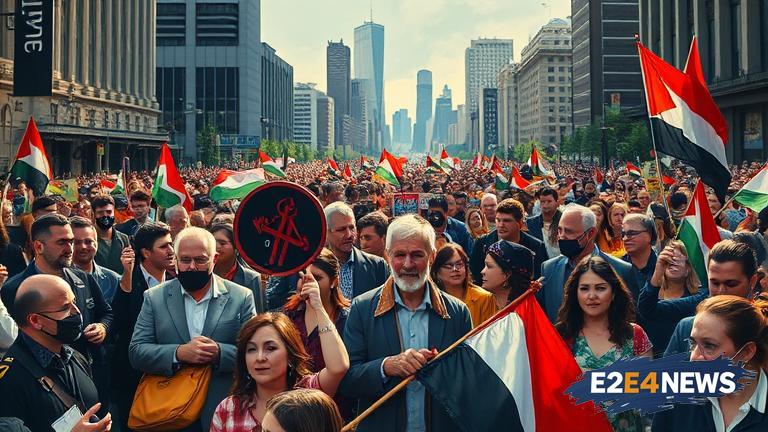Thousands of Australians took to the streets in major cities across the country to protest against Israel’s ongoing war in Gaza. The demonstrations, which were largely peaceful, saw protesters waving Palestinian flags and holding signs that read ‘Free Palestine’ and ‘Stop the War’. The rallies were organized by various groups, including the Australian Palestinian community, human rights organizations, and left-wing political parties. The protesters called for an end to Israel’s military actions in Gaza, which have resulted in the deaths of thousands of Palestinians, including women and children. They also demanded that the Australian government take a stronger stance against Israel’s actions and support the Palestinian people’s right to self-determination. The protests were met with a heavy police presence, but there were no reports of major incidents or arrests. In Sydney, thousands of protesters marched through the city center, blocking traffic and causing disruptions. In Melbourne, a large crowd gathered outside the State Library, where speakers denounced Israel’s actions and called for international intervention. In Brisbane, protesters rallied outside the city hall, waving flags and chanting slogans. The protests were not limited to the major cities, with smaller rallies taking place in towns and cities across the country. The Australian government has been criticized for its response to the crisis, with many arguing that it has not done enough to condemn Israel’s actions. The protests come as the international community is increasingly calling for a ceasefire and a negotiated settlement to the conflict. The United Nations has warned of a humanitarian crisis in Gaza, with thousands of people displaced and in need of aid. The Australian protests are part of a larger global movement, with demonstrations taking place in cities around the world. The protesters in Australia were joined by representatives from various faith communities, including Muslims, Christians, and Jews, who called for peace and an end to the violence. The rallies also featured speeches from Palestinian Australians, who shared their personal stories and experiences of living under occupation. The protests were covered extensively in the Australian media, with many outlets featuring interviews with protesters and organizers. The demonstrations have sparked a national conversation about Australia’s role in the conflict and the country’s relationship with Israel. Many Australians are calling for a more nuanced and balanced approach to the conflict, one that recognizes the rights and suffering of both Israelis and Palestinians. The protests have also highlighted the growing divide between the Australian government and the public on the issue, with many voters demanding a more progressive and humanitarian approach. As the conflict continues to escalate, it is likely that the protests will continue, with many Australians committed to standing in solidarity with the Palestinian people. The Australian government will be under increasing pressure to respond to the crisis and to take a stronger stance against Israel’s actions. The protests have shown that the Australian public is deeply concerned about the conflict and is demanding action from its leaders. The demonstrations have also highlighted the importance of international solidarity and the need for a global response to the crisis. The Australian protests are a powerful example of the impact that grassroots activism can have on public discourse and policy. As the world watches the conflict unfold, the protests in Australia will be an important part of the global conversation about justice, human rights, and peace in the Middle East.
